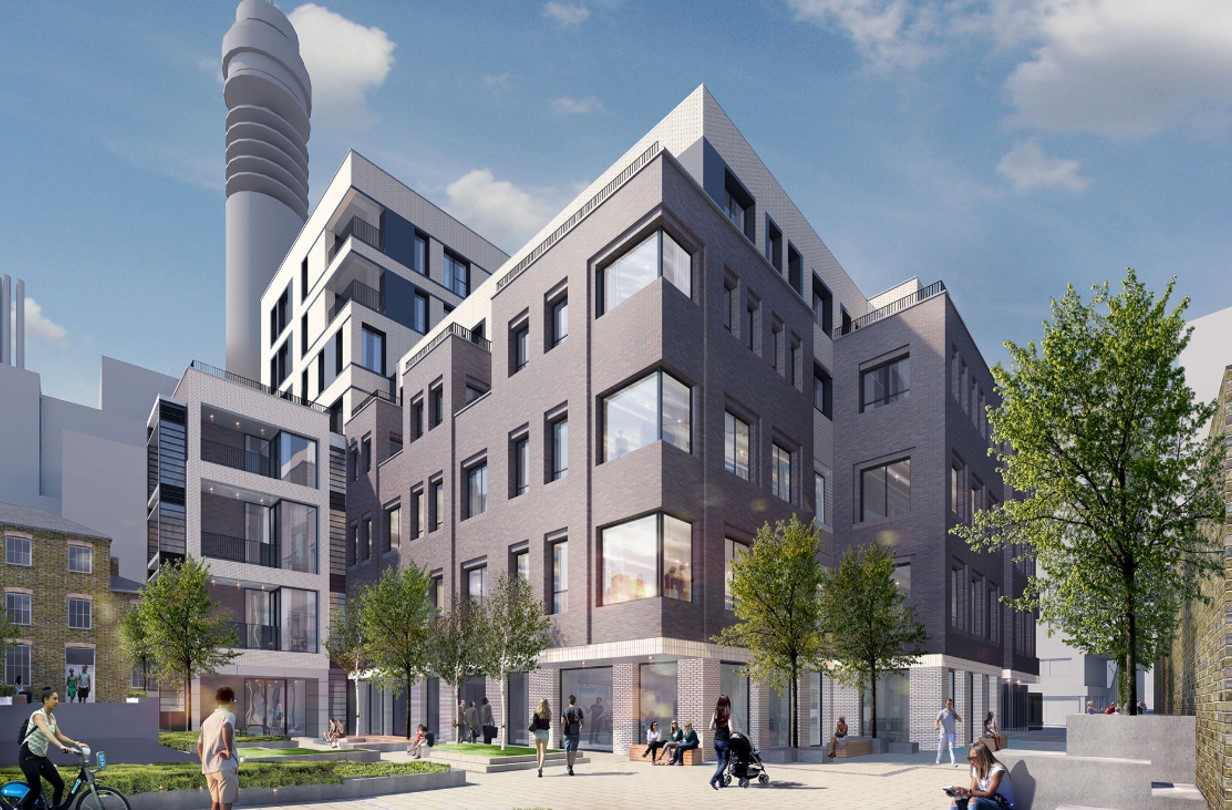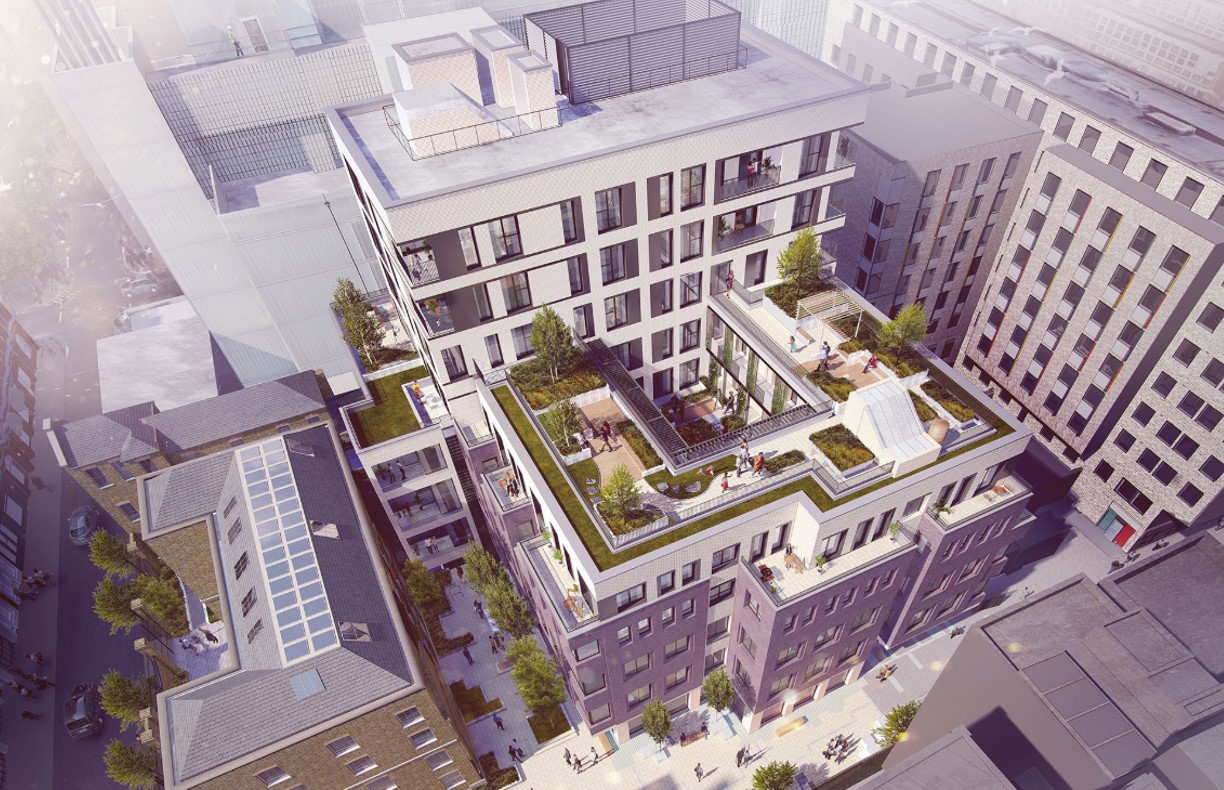
Project outline
The Temple team are the retained planning consultants of University College London Hospital Charity and were asked to submit the planning application for the refurbishment and redevelopment of Middlesex Hospital Annex (MHA). This was a tight, constrained and interesting development including at risk Grade II listed former C18th workhouse, one of only three remaining in London. The site is also subject to anticipated and significant archaeological works in dealing with about 2000 human remains.
Our role
We prepared and submitted the planning application for a total of 50 self-contained one to four bedroom units including 10 x private, 4 x intermediate and 36 x social rented as well as 7000sq.m of flexible commercial space (B1/D1). The intermediate houses will be genuinely affordable to hard to reach local nurses and junior doctors given the client’s interest, the buildings historic medical associations with Dr Joseph Rogers who led the movement to reform Poor Law healthcare and the proximity to University College Hospital.
As an at risk Grade II listed building, Temple led negotiations with the LPA and Historic England to agree on the sensitive restoration with the remainder of the site redeveloped, ensuring commercial viability and vital housing provision.
Our services
Temple led the design team in relation to all other technical planning assessments and working closely with the architects, Llewelyn Davies, helped influence the scheme in relation to the adopted Fitzrovia Area Action Plan (2014).
This included the provision or permanent self-contained housing especially affordable housing; public space and access through Bedford Passage; and a design and height that respects local heritage and strategic viewing corridors.
In securing permission, we then secured a s73 application, which maintains the significant excess of policy compliant housing (70% affordable). Temple recognises that the scheme, which is unique in this part of London, makes a small but valuable contribution to the housing shortage by providing a mixture of housing sizes and tenures that will contribute to maintaining and supporting mixed and inclusive communities which has the potential for long-lasting impacts on social well-being and regeneration.
We are also assisting in the delivery of the scheme, through discharge of the planning conditions, obligations, CIL payments and site wide air quality and noise monitoring. We also provide the demolition management and construction management plans and are retained by the Client as their trusted advisor and planning interface with the site contractors for the life of the delivery programme until expected completion in 2022/3.

